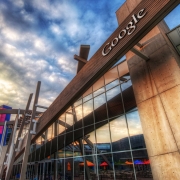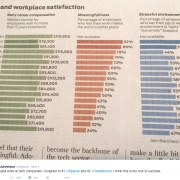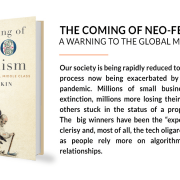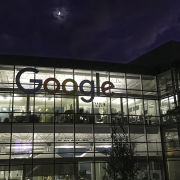Google: Whatever Happened to ‘Don’t Be Evil’?
When Google went public in 2004, it epitomised technological and entrepreneurial genius. Two engineers had developed a remarkably powerful, easy-to-use search engine, opening the doors to vast amounts of knowledge.
The founders proclaimed their motto as ‘Don’t be evil’, which was typical of Silicon Valley’s decades-old techno-optimism. Stewart Brand, writing in Rolling Stone in 1972, claimed that once access to information became universal, it would turn us all into ‘computer bums, all more empowered as individuals and as cooperators’. It would be a new era, Brand continued, of enhanced ‘spontaneous creation and of human interaction’. The ‘early digital idealists’, noted computer scientist and writer Jaron Lanier in 2014, envisioned a ‘sharing’ web that functioned ‘free from the constraints of the commercial order’.
This idyll is no more. Google and the other Big Tech firms are no longer grassroots creators. They’re now oligarchs and monopolists, exerting undue influence on the market and on politics.
The motto ‘Don’t be evil’ was removed in 2018 from Google’s corporate code of conduct. In the words of Ross LaJeunesse, a former head of international relations at Google, this reflected the transformation of Google into a company consumed by the need to ‘chase bigger profits and an even higher stock price’.
Google has morphed into a quasi-monopoly that now controls over 90 per cent of the US, European and UK search-engine market. Gmail, meanwhile, has 1.5 billion monthly users, or about 75 per cent of the market for web-based email. Like many of its oligarchic counterparts, Google now controls a huge revenue base. As writer and academic Michael Lind puts it, Google now functions as a ‘toll booth’ company, acting like a digital feudal lord that charges fees to cyber-travellers. Shielded from competition, it benefits increasingly not from innovation but from finding new ways to leverage its dominant market position.
Google’s search engine, once noted for its impartiality and open sourcing, has become increasingly politicised. It is using its market power to stifle competitors – as shown by investigations in Europe, the UK and in the US. Indeed, the EU fined Google billions of dollars in 2021 for giving preferential treatment on its search engine to its own shopping service. One of Google’s few competitors, the much smaller DuckDuckGo, accused it earlier this year of manipulating browser extensions to drive customers from rival products. And this month, the UK state regulator, the Competition and Markets Authority, initiated its own probe into both Apple and Google.
Silicon Valley feudalism
The new lords of cyberspace may not wear top hats or chainmail, but they rule with the same ferocity as their medieval forebears or the rapacious capitalists of the Gilded Age. Former Apple employee and Wired magazine writer Antonio García Martínez has described the tech oligarchs’ operations as ‘feudalism with better marketing’.
Back when I started reporting on Silicon Valley in the mid-1970s, many start-up companies were run by people who had revolutionary ideas about how to make society better. At the Occupy Wall Street protests in 2011, anti-capitalist demonstrators even held a minute’s silence when they heard that Steve Jobs had died. They hailed him as a liberator and maverick.
Indeed, in the past, foundational companies like Hewlett-Packard and Intel created a good life not only for their employees, but also for a large number of smaller firms and contractors. Researchers Manuel Pastor and Chris Brenner claim the 1980s were ‘good times for growth and equity in Silicon Valley’.
Read the rest of this piece at Spiked.
Joel Kotkin is the author of The Coming of Neo-Feudalism: A Warning to the Global Middle Class. He is the Roger Hobbs Presidential Fellow in Urban Futures at Chapman University and Executive Director for Urban Reform Institute. Learn more at joelkotkin.com and follow him on Twitter @joelkotkin.
Homepage photo: Trey Ratcliff via Flickr under CC 2.0 License.









